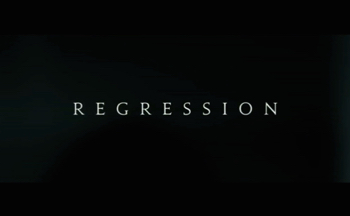Rascals case in brief
In the beginning, in 1989, more than 90 children at the Little Rascals Day Care Center in Edenton, North Carolina, accused a total of 20 adults with 429 instances of sexual abuse over a three-year period. It may have all begun with one parent’s complaint about punishment given her child.
Among the alleged perpetrators: the sheriff and mayor. But prosecutors would charge only Robin Byrum, Darlene Harris, Elizabeth “Betsy” Kelly, Robert “Bob” Kelly, Willard Scott Privott, Shelley Stone and Dawn Wilson – the Edenton 7.
Along with sodomy and beatings, allegations included a baby killed with a handgun, a child being hung upside down from a tree and being set on fire and countless other fantastic incidents involving spaceships, hot air balloons, pirate ships and trained sharks.
By the time prosecutors dropped the last charges in 1997, Little Rascals had become North Carolina’s longest and most costly criminal trial. Prosecutors kept defendants jailed in hopes at least one would turn against their supposed co-conspirators. Remarkably, none did. Another shameful record: Five defendants had to wait longer to face their accusers in court than anyone else in North Carolina history.
Between 1991 and 1997, Ofra Bikel produced three extraordinary episodes on the Little Rascals case for the PBS series “Frontline.” Although “Innocence Lost” did not deter prosecutors, it exposed their tactics and fostered nationwide skepticism and dismay.
With each passing year, the absurdity of the Little Rascals charges has become more obvious. But no admission of error has ever come from prosecutors, police, interviewers or parents. This site is devoted to the issues raised by this case.
On Facebook
Click for earlier Facebook posts archived on this site
Click to go to
Today’s random selection from the Little Rascals Day Care archives….
Click for earlier Facebook posts archived on this site
Click to go to
Today’s random selection from the Little Rascals Day Care archives….
Beware of parents in search of ‘truth’
Feb. 1, 2013
“The Little Rascals case serves as a good reminder that parents also are part of the child-savers interest group and have as much, in fact probably more, of a vested interest in ‘getting to the truth’ than any of their professional associates….
“From the witness stand, one mother describes how her repeated questioning of her three-year-old son finally confirmed that he, too, had been abused by Bob Kelly…
Mother: First time I questioned him, we were laying on my bed and I was just, you know, ‘Do you like Mr. Bob?’ ‘Has Mr. Bob ever done anything bad to you?’ And as we were talking I got more specific…. ‘Has Mr. Bob ever touched your hiney? ‘Has he ever put his finger in your hiney?’
Attorney: Was that the only time you questioned him?
Mother: No, it went on….
Attorney: Now tell me how it developed that you began to get statements from him that raised a question in your mind about sexual abuse.
Mother: (My son) was being questioned a lot from that first time on, quite often. And then that last week it was probably a few hours every day thing…. I got a response from him. Um, he told me that Mr. Bob had put his penis in his mouth and peed on him….
Attorney: How did he come up with those kinds of statements?
Mother: Because I asked him…. He had been hearing it at least once a week since I first started questioning him and then that last week he was hearing it every day.
“In their empirical research on repeated interviewing, Ceci and Bruck (1995) find that while children do remember more with each additional interview, their reports also become more inaccurate over time.
“Simply put, they recall both more accurate and inaccurate details with each successive interview. Further, repeated interviews signal the interviewers’ bias to the children, cueing them on how to answer in a way that pleases their interrogators.”
– From “The Day Care Ritual Abuse Moral Panic” by Mary De Young (2004)
Why prosecutors can’t admit they’re wrong
 March 5, 2012
March 5, 2012
“DURHAM — Tracey Cline could not admit she was wrong….”
Thus begins J. Andrew Curliss’s latest behavioral analysis of Durham County’s latest disgraced district attorney.
Coincidentally, Curliss cites a book I’ve been reading to better understand the rigidly wrongheaded behavior of the Little Rascals prosecutors.
“Carol Tavris, a Los Angeles social psychologist who has researched and written about the behavior and decision-making of prosecutors, said studies show the human brain, when sorting out conflicting beliefs and actions, will engage in a powerful act known as ‘self-justification.’
“It can keep people from admitting they are wrong and can be more powerful and more dangerous than an explicit lie, she said in an interview and in a 2007 book she co-authored, ‘Mistakes Were Made (But Not By Me)’…
“Self-justification is especially concerning in the justice system, Tavris said, because authorities often view themselves as ‘good guys’ doing the ‘right thing’….
“ ‘It’s really, really, really hard to face the reality that you screwed up,’ she said. ‘When we have a view of ourselves as good, competent, ethical, honest people and we are now confronted with evidence that we did something that was incompetent, unethical, immoral or harmful, we have two choices. We can ’fess up – say, “Oh, my God, look at this evidence, what did I do? How can I make amends?” – or, we deny.’ ”
Here’s a recent public ’fessing up that could be a model for errant prosecutors: “I want to express my sincere regret and apology…. It was a terrible mistake, and we knew it was wrong while we were doing it. Instead of getting caught up in it, I should have stopped it.”
Alas, it comes not from Cline – or from H. P. Williams Jr., Bill Hart or Nancy Lamb – but from the NFL coach who oversaw the “bounty” system for disabling opposing players.
‘The right man’ was the wrong man? No way!
 March 19, 2012
March 19, 2012
In “The Folly of Fools: The Logic of Deceit and Self-Deception in Human Life” (2011), Robert Trivers briefly addresses the causes and costs of the ritual abuse mania.
I asked Trivers, professor of anthropology and biological sciences at Rutgers University, about the role played by prosecutors in such cases:
“Prosecutors are notoriously vulnerable to tunnel vision – i.e., once a suspect has been identified, others disappear from sight; they also need to justify themselves in retrospect.
“I was told by (Innocence Project cofounder Peter J.) Neufeld that even after incontrovertible DNA evidence, 75 percent of the original detectives who came up with (and helped convict) the wrong person still say they believe they got ‘the right man.’ ”
What movie may doubt, book surely doesn’t
 June 11, 2015
June 11, 2015
“In (the upcoming movie) Regression, Ethan Hawke plays a detective investigating accusations by a woman against her father. There’s a twist: The father has admitted wrongdoing, though he has no recollection of what happened – and a psychologist is summoned to help him recover his memories….
“The trailer is opaque in its rendering of what crime the father may have committed, but it’s probably meant to echo the Satanic witch hunts that gripped parts of America in the 1980s and early ’90s…. The daughter’s haunting memories include ‘chanting,’ ‘robes’ and a ‘black mask’….
“So it’ll be interesting to see (director Alejandro) Amenábar’s take in Regression: Does he present the case as a real, Satanic experience that actually occurs within the world of the story, or will the film be a larger commentary on the horrific fallout of unfounded hysteria?
“Here’s hoping it’s the latter…. We’ll find out when Regression opens in August.”
– From “Ethan Hawke and Emma Watson Battle Satan (Maybe) in the Trailer for Regression”
by Aisha Harris at Slate (June 10)
Also arriving in August – but much less ambiguously: “We Believe The Children: A Moral Panic in the 1980s” by Richard Beck. According to a starred review in Publishers Weekly, “Beck marshals extensive research into an absorbing dissection of a panic whose tremors still affect us today.”











0 CommentsComment on Facebook